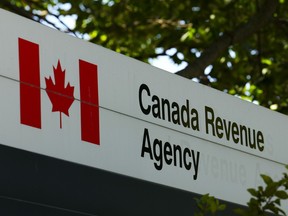Offshore trusts for South Africans are becoming more popular to those looking at wealth structuring options overseas. They can safeguard their assets in the face of political and economic unrest through these arrangements.
These opportunities are frequently obtained through foreign legal entities like foundations, corporations, and trusts.
These foreign-jurisdiction-established trusts have benefits, such as enhanced succession planning, more investment flexibility, and tax neutrality.
If you are looking to invest as an expat or high-net-worth individual, which is what I specialize in, you can email me (advice@adamfayed.com) or WhatsApp (+44-7393-450-837).
This includes if you are looking for alternatives or a second opinion.
Some of the facts might change from the time of writing, and nothing written here is formal advice.
For updated guidance, please contact me.
Offshore Trusts for South Africans 101
Setting Up Offshore Trusts South Africa
The appropriate jurisdiction, well-defined goals and beneficiaries, a trustworthy trustee, asset protection, and knowledge of tax aspects are all important factors to take into account when establishing an offshore trust.
South Africans establishing offshore trusts most frequently choose to establish their affairs in:
- The Isle of Man is a great option for asset preservation and estate planning because of its advantageous tax system, which includes no corporate tax, no capital gains tax, and no inheritance tax. It also has strong privacy laws and political stability.
- Mauritius is a popular choice for South Africans wishing to manage their wealth because of its affordability and close proximity to South Africa. It also boasts a strong judicial system and a well-regarded tax environment.
- Malta is a popular EU member that offers reputational benefits and a robust legal system that supports trust systems, while not being a classic trust jurisdiction.
- Comparable to Malta, Cyprus is becoming a more alluring choice for offshore trusts due to its solid legal framework and advantageous tax system.
- Singapore is a burgeoning financial center that attracts South Africans looking for offshore trust solutions because of its solid regulatory environment and investment opportunities.
Can a South African trust invest offshore?
It is against the law for South African trusts to directly invest overseas. For affluent individuals hoping to diversify their portfolios through foreign asset investments, this restriction presents a substantial obstacle.
Nonetheless, through particular structures like sinking funds, which permit offshore allocation within their underlying investments, South African trusts might indirectly become exposed to offshore investments.
This implies that trusts can still profit from offshore growing assets and currency changes by using these alternative investment arrangements, even while direct investment in offshore assets is prohibited.
Setting up an offshore trust can be a good alternative for people who want to invest overseas since it gives them more freedom and access to various investment options without being restricted by South African exchange control laws.
Can a South African trust hold offshore assets?
Indeed, however there are particular limitations and factors to take into account.
Exchange control restrictions ban South African trusts from holding offshore assets directly, but they do allow them to hold overseas assets through offshore trusts. This means that South Africans can create these structures in countries that permit them to do so.

Such trusts can subsequently hold various overseas investments, such as securities, bank accounts, and real estate.
Additionally, there are advantages to estate planning and asset protection when moving overseas assets into an offshore trust.
Just make sure these assets are legally obtained and adhere to international and local laws is vital, though.
How are offshore trusts taxed?
An offshore trust needs to be created and run outside of South Africa so as to be considered non-resident for taxation purposes in that country.
The trust will be liable to South African rates on its worldwide income and capital gains and will be taxed as a resident if it is found that the place of effective management is within the nation.
Any revenue received from South Africa via offshore trusts is subject to levies, with withholding taxes usually ranging from 15% to 20%. There may be a flat tax rate of 45% applied to any amounts not covered by withholding taxes.
Distributions from an offshore trust to South African recipients will be subject to income taxation in the same way as they would have been if the trust had its headquarters there. Because of this, keeping revenue inside the trust is less tax-efficient.
To escape paying resident taxes, South Africans must maintain extensive records attesting to the trust’s management outside of the country.
For efficient tax planning and compliance while establishing and administering offshore trusts, professional guidance is essential due to the intricacies and possible tax liabilities involved.
Offshore Trusts Benefits
- Reduced taxes, asset defense against lawsuits, and improved estate planning for next generations are some advantages of offshore trusts. South African trusts are more restrictive than these, offering less freedom.
- In addition to speeding up estate disposal and avoiding drawn-out probate procedures, they enable the discreet and effective distribution of money to recipients.
- With the help of offshore trusts, South Africans can make indirect investments in global markets and asset classes that might not otherwise be accessible.
- Through the appointment of independent trustees, offshore trusts improve compliance and governance by guaranteeing that assets are administered by trained specialists.
Trust Offshore Disadvantages
- Offshore trusts frequently have intricate legal requirements that are challenging to understand. Penalties or benefit termination may follow noncompliance with these rules.
- Offshore trusts have possible tax liabilities in addition to potential tax advantages. Residents of South Africa who have overseas income must report it and risk double taxation if it is not organized appropriately.
- An offshore trust’s efficacy is primarily determined by the country that is selected.
- The trust’s ability to succeed depends on the skill and moral character of the trustee.
Pained by financial indecision? Want to invest with Adam?

Adam is an internationally recognised author on financial matters, with over 760.2 million answer views on Quora.com, a widely sold book on Amazon, and a contributor on Forbes.





















Discussion about this post